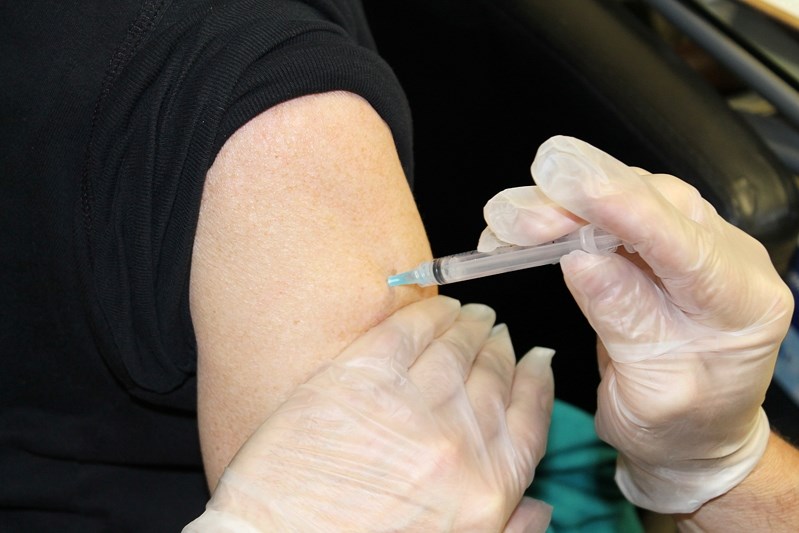Cases of influenza are on the rise in Central Alberta and the Innisfail Health Centre is well prepared for any influenza/H1N1 outbreak.
ìA majority of our care workers are vaccinated,î said Susan Telford, site manager of the Innisfail Health Centre. ìPlus, we are very careful not to spread the virus with good antiseptic practices.î
She noted that there are currently no influenza cases in the 28-bed facility and that while she was not aware of the number of cases that may have passed through emergency, she could not say whether Innisfail was an outbreak zone.
ìNot every flu diagnosis requires hospitalization, and as we are a small facility we do encourage home care when possible,î added Telford. ìWe will continue to monitor the situation and deal with what comes our way.î
A surge in H1N1 diagnoses, along with hospitalizations, has led to Alberta Health Services (AHS) opening special clinics in Calgary, Edmonton, Grande Prairie, and Slave Lake for flu vaccinations.
While the Stollery Children's Hospital in Edmonton has been closed to new patients, no other facilities have been quarantined as of yet. Of the 965 influenza cases reported confirmed across the province as of Jan. 2, 920 have been identified as H1N1, with five deaths thus far.
ìThere have been 123 cases of influenza confirmed in the central zone to January 2,î said Dr. Deena Hinshaw, Alberta Health Services central zone medical spokesperson. ìOf those, 117 are H1N1 patients.î
The central zone ranges from Olds to Wetaskiwin, and Provost to Rocky Mountain House. Patient numbers are not broken down by community except for monitoring purposes to determine if a special clinic is required due to excessive demand.
ìWe cannot say how many people are infected,î added Hinshaw. ìThis is the tip of the iceberg, with many influenza cases not being reported, or not swabbed for identification. There are many, many more we do not know about.î
Hinshaw added that this is an average year for influenza patients, but it could easily get out of hand. Health Minister Fred Horne concurred.
ìWe are concerned that the numbers of Albertans and health professionals not vaccinated will help spread the flu,î said Horne in a CBC interview. ìThat does not protect the community.î
Horne further stated that only 840,000 Albertans out of over four million, and 49 per cent of health professionals have been vaccinated. He noted that education has not been enough, and that further measures may be necessary to increase vaccination rates.
Influenza is an infection of the nose, throat and lungs that is viral in nature, usually occurring during the winter months. Spread through the air, influenza can be contracted via touch as well. Symptoms of the flu include a fever, sore muscles, coughs, headaches, and a loss of appetite or fatigue. Hospitalization for severe cases can occur, and up to 4,000 deaths per year have been reported.
Free flu shots are available to Albertans at Alberta Health Services' public immunization clinics, as well as at some pharmacies and doctors' offices. A nasal spray is available for children aged two to 17. Children under the age of nine must receive their vaccination spray at an immunization clinic.
Those wishing to be vaccinated should call ahead to confirm availability of vaccine and appointments. Innisfail and area citizens can go to the Innisfail Health Centre for vaccinations, or can check online at http://www.albertahealthservices.ca/influ/.
Vaccinations can take up to two weeks to start working.




